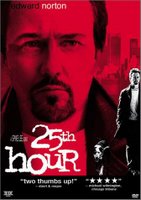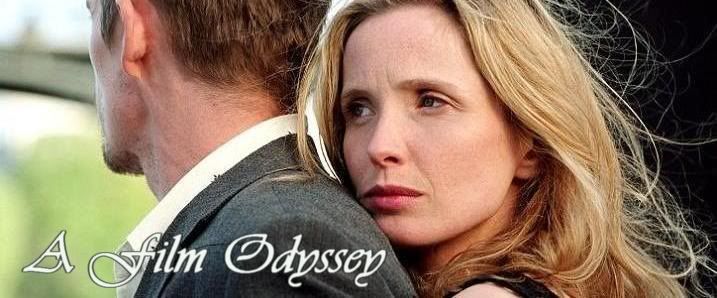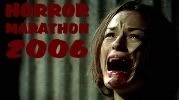25th Hour (2002)
 In the smoldering physical and emotional aftermath of September 11th, 2001, the people of New York, the United States, and much of the world had a period of turbulent unrest in which to reflect on their lives and everything in them they had previously taken for granted. No moment in American history shook the foundations of an entire cultural identity harder at it’s very roots, and while everyone experienced that day and the time afterwards slightly differently, the need to heal the wounds inflicted and the importance of understanding how and why they occurred in the first place was of chief importance before anyone could begin to think about going on with their lives, so as they were. Less of a mirror of American life during those troublesome times than an emotive time capsule of the ranging emotions stirred up by those events, Spike Lee’s 25th Hour works to sort through the rubble created by that tragedy, paralleling it with the more immediate personal predicament of it’s main character. Edward Norton is Monty Brogan, a formerly successful drug dealer sentenced to seven years in prison for his narcotics crimes. When the film begins, he has but one day left on parole before he must report for his sentence.
In the smoldering physical and emotional aftermath of September 11th, 2001, the people of New York, the United States, and much of the world had a period of turbulent unrest in which to reflect on their lives and everything in them they had previously taken for granted. No moment in American history shook the foundations of an entire cultural identity harder at it’s very roots, and while everyone experienced that day and the time afterwards slightly differently, the need to heal the wounds inflicted and the importance of understanding how and why they occurred in the first place was of chief importance before anyone could begin to think about going on with their lives, so as they were. Less of a mirror of American life during those troublesome times than an emotive time capsule of the ranging emotions stirred up by those events, Spike Lee’s 25th Hour works to sort through the rubble created by that tragedy, paralleling it with the more immediate personal predicament of it’s main character. Edward Norton is Monty Brogan, a formerly successful drug dealer sentenced to seven years in prison for his narcotics crimes. When the film begins, he has but one day left on parole before he must report for his sentence.25th Hour opens with a haunting credits sequence composed of images at ground zero, where high beam lights have replaced the destroyed towers, coalescing together into the night sky like a divine force at the very center of destruction. A feeling of immense spiritual anguish lies at the center of the film, and if the complaint often arises that 25th Hour feels meandering or confused, then I respond with the charge that that attribute is the very point. Guided by Monty’s impending sentence, the film looks at the varying effects of his date with destiny on him, his girlfriend Naturelle (Rosario Dawson), his closest friends Jacob and Frank (Phillip Seymour Hoffman and Barry Pepper, id and ego, respectively) and his father (Brian Cox), a retired firefighter. Tied together with pummeling but illuminating images and feelings from the distraught city, 25th Hour uses the ticking clock of it’s plot to suggest that, even if we know tragedy is upon us, how we react to it’s chaotic effects can ultimately be more important than avoiding it in the first place. The parallels between Monty’s character and the larger framework of the city are never quite complete or even in line with each other, but neither should they be. 25th Hour is a film as confused and searching for truth and meanings as its characters are. It’s dawning realization comes at the end, when neither Monty nor the audience have quite found what they’ve been looking for, but have nonetheless begun the difficult search within.
Lee’s aesthetic finds transcendence in what would be banality in lesser hands. The simple imagery of the city lifestyle and Monty’s personal experiences suggests deeper currents of regret, resentment, trust and acceptance, to name but a few of the ethereal feelings running through the film’s life blood. Monty (yet another brilliant character from Edward Norton) is presented sympathetically enough (he deals drugs, but is well aware of the damage they bring to his clients), especially when it is revealed that his arrest only served to find higher crime authorities that he in turn reported to. His character comes most clearly into focus, however, during a scene when, prompted by graffiti scribbled on a bathroom window, he launched into a verbal tirade of hatred against every group, place and person in the city that comes to mind. The brilliance of it all comes full circle in the end, when he realizes that he and no one else is responsible for the direction his life has gone. More poetic, however, is the final montage, aided by Brian Cox’s understated narration, which suggests the endless, however fleeting possibilities present even in when it seems that all hope is lost. In accordance with Monty, the film’s title represents the bleak future on the horizon. Yet it also suggests that the day of destruction has just past, and that only compassion and inward focus will allow us to correct those ills and to forge ahead in a newly enlightened state. The scars will always remain, but what matters is how we carry them after the initial wounds have healed.





